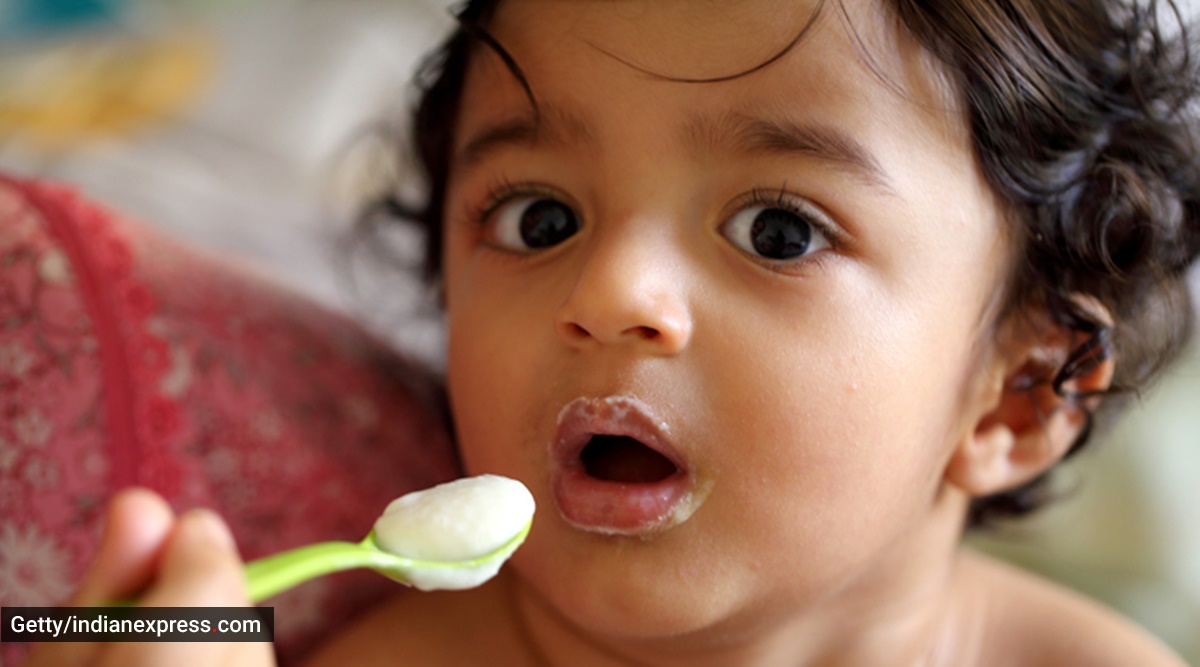 Fussy eating is frustrating for parents, and it can lead to low immunity, low weight for age, and low height. (Photo: Getty/Thinkstock)
Fussy eating is frustrating for parents, and it can lead to low immunity, low weight for age, and low height. (Photo: Getty/Thinkstock)Often, parents complain that their child is not eating properly and are being fussy. While not all kids are fussy, some crankiness related to food is common in many households.
Dr Ganesh Kadhe, associate director medical and scientific affairs at Abbott’s Nutrition business says fussy eating occurs in children due to early age feeding difficulties and food, taste preferences, late introduction to solid/semi-solid food and pressure to adopt eating habits.
He lists the following five reasons:
Best of Express Premium
1. Taste: Children are born with a natural preference for sweets. They crave for higher levels of sweetness compared to adults. They may not enjoy having vegetables as much, which can make them fussy eaters. As they grow up, they may increase their liking for bitter or sour food with repeated exposure, as their taste buds evolve.
2. Composition of food: Your child may prefer foods like slices of bread, cakes, breadsticks, crackers, chicken nuggets, chips, over anything else. The reason is they do not have to put much effort into chewing and swallowing these foods as they are processed foods with no added nutritional value. The second reason is that they are starchy carbohydrates. A child prefers carbohydrates as the preferred source of fuel.
3. Distraction and appetite: Snacking close to mealtime may reduce their desire to eat the meal. It is essential to structure mealtime and snacks, especially without any screen in front of them. Screen time during meals can make them overeat when they grow up, or simply not eat enough.
 The aim is for them to internally understand their hunger cues and fullness quotient. It’s best to let them self-feed under parental supervision. (Photo: Getty/Thinkstock)
The aim is for them to internally understand their hunger cues and fullness quotient. It’s best to let them self-feed under parental supervision. (Photo: Getty/Thinkstock) 4. Spoon-feeding: Children will, of course, eat more if their plates are loaded with food by a parent, but that is not ideal. The aim is for them to internally understand their hunger cues and fullness quotient. It’s best to let them self-feed under parental supervision.
5. Activity levels: If your child has been running around the park, has had a busy day or has been learning a new thing, it leads to an increase in appetite. If they have no physical activity at all, they might not want to eat as much. Tiredness and activity levels have a direct impact on appetite.
How to tackle fussy eaters?
According to Dr Kadhe, fussy eating is frustrating for parents, and it can lead to low immunity, low weight for age, and low height. As such, they can:
– Set mealtimes: Choose healthy food options and introduce one new tasty and nutritious food at least once a day. Be patient as your child may require repeated exposure to new food before adapting to it.
– Create a family table without any electronic devices: This is where everyone eats together.
– Nutritional supplement: It offers a complete and balanced nutrition solution with 37 nutrients and bridges the nutritional gap caused by fussy eating habits.
– Make it fun: Be creative in how you present healthy but not necessarily tasty food. Add veggies to their favourite pasta, add a side of dipping sauce to the plate of broccoli.
The doctor adds that it is important for kids to get the right mix of nutrients that will help them develop healthy bodies and strong bones.
A child’s meal plan should comprise:
* Protein: For building muscles, other tissues, and a healthy immune system.
* Fruits and vegetables: For a nutritional fibre intake, sources of vitamins and minerals.
* Grains: As a source of carbohydrates and energy.
* Iron: For making healthy red blood cells that carry oxygen through the body.
* Vitamin D: For strong, healthy bones.
* Calcium: It helps build strong bones.
* Healthy fats: For brain and nerve development, they also aid nutrient absorption.
* Vitamin C: For a healthy immune system, healing, and absorption of iron.
📣 For more lifestyle news, follow us on Instagram | Twitter | Facebook and don’t miss out on the latest updates!
- The Indian Express website has been rated GREEN for its credibility and trustworthiness by Newsguard, a global service that rates news sources for their journalistic standards.

